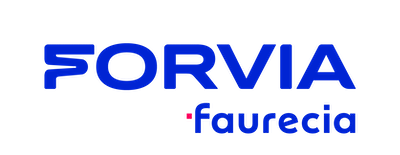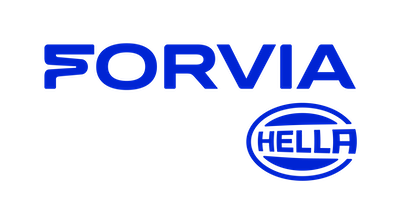Conducting business responsibly
Our vision
FORVIA undertakes to guarantee a safe work environment for all its employees and outside parties on its sites, while placing quality and service at the heart of operational excellence.
Policies and measures are implemented to anticipate, reduce and manage the main safety risks identified by FORVIA (physical injury related to production and occupational illnesses related to workstation ergonomics) based on two priorities: protecting employees’ health and improving workplace safety. The Group’s Hygiene, Health and Safety policy is overseen by the HSE department. It translates into a set of simple, practical rules via the “7 Safety Fundamentals.” FORVIA is also committed to its products being beyond reproach in terms of quality and safety, including the active and passive safety of drivers and passengers, with the goal of achieving Total Customer Satisfaction. The Group’s safety policy applies to its entire value chain: sourcing, development, production, customer satisfaction monitoring and, where applicable, product recalls.
Safety at work
Workplace health and safety driven by excellence
FORVIA’s Hygiene, Health and Safety policy is implemented via the FORVIA Excellence System (FES). Based on active risk prevention, this management tool uses metrics that can be regularly checked, and their effectiveness measured.
FES incorporates the quality, environmental and safety standards of the automotive industry, and thus helps to enable compliance with these standards: IATF 16949, ISO 14001, ISO 45001. It benefits from FORVIA’s 15 years of experience and is continually supplemented with the best internal and external practices relating to lean manufacturing.
Creating a culture of safety with the CARE program
The CARE program is deployed at nearly 300 sites worldwide. Its function is to raise awareness and increase commitment among all employees and subcontractors as they go about their day-to-day work. The program is based on four fundamental principles:
- Compliance: compliance with HSE rules through training and audits;
- Attitudes: reactions and practices that ensure the safety of all employees;
- Risk mitigation: detecting and preventing risks;
- Everyone’s Commitment: from operators to executives, including all levels of leadership.
In addition, to guarantee the safety of all, the Group apply the mandatory “7 Safety Fundamentals.”
Training, communication and internal audits
The FES ensures that all employees are continuously trained according to HSE rules. On site, several communication media (videos, messaging, presentations, etc.) are used to remind all employees of the “7 Safety Fundamentals” on a daily basis.
All meetings systematically begin with a safety topic. An online platform has also been set up to discuss and share best practices. Each month, a specific topic is chosen to highlight one of the Group’s best practices and celebrate employees’ commitment to safety issues.
Our vision
In today’s business environment, organizations need to be increasingly agile and reactive. FORVIA’s new internal compliance dashboard reflects its belief in the importance of promoting a culture of integrity, safety and vigilance wherever the Group operates, while ensuring compliance with the highest ethical standards.
FORVIA has been a member of the United Nations Global Compact since 2004. It is committed to respecting and promoting the conventions of the International Labour Organization (ILO) on human rights, labor standards, and the environment in its business practices. FORVIA’s Code of Ethics contains all of its rules and principles, which must be understood and respected in all countries by all employees across all business lines, and by all business partners.
Building an ethics and compliance culture
The Group’s ethics and compliance program seeks to implement an extensive system of policies, processes, training programs and communications. FORVIA’s leaders have a personal, renewed commitment to integrity. They are supported by a robust compliance process that drives a Group-wide culture of integrity.
The Code of Ethics aims to develop accountability and employee empowerment based on respect for fundamental human rights, economic and social dialogue, skills development, and ethics and rules of conduct, including those related to detecting and preventing corruption.
Strong compliance governance
The implementation of the Group Ethics and Compliance program is based on specific organization and governance:
- Compliance Committee chaired by the Chief Executive Officer, for priorities and strategic decisions.
- Risk Committee for compliance risks discussions.
- Audit Committee for disclosure of the annual compliance roadmap.
- Regional Compliance Officers (RCOs) and Business Group Compliance Leaders for implementing the compliance program, sharing priorities and drafting action plans.
Continuous risk assessment
FORVIA defines and implements systems, processes and risk assessment plans to continuously improve its Ethics and Compliance program. The Group Compliance Officer works closely with the Risk Officer and the Internal Control and Internal Audit network. Their role is to identify and monitor noncompliance risks and to update the compliance risk mapping on a regular basis, using feedback from the population exposed to identified risks.
Training and communication on ethics and compliance
FORVIA has introduced various training sessions for all FORVIA employees (including part-time employees, interns, consultants, etc.). These courses are tailored to FORVIA’s risk profile and address the risks that local teams may face. They include mandatory MOOCs (Ethics, Anti-trust, Anti-corruption), regular refresher sessions at industrial sites, and practical guides on anticompetitive practices, reporting and managing conflicts of interest, and the internal whistle-blowing procedure. Significant efforts have been made to disseminate these guides throughout the Group.
Along with the Human Resources, Internal Audit and Control teams, the Compliance department ensures that all identified employees receive proper training in the internal rules.
Faurecia Code of Ethics
Faurecia Code of Conduct for the Prevention of Corruption
For specific FORVIA HELLA compliance documentation, please visit their dedicated website.
Empowering everybody to voice concerns

Our employees, customers and partners are the front line in holding us to a higher standard: all stakeholders - internal or external - are empowered to, anonymously, report ethics and corruption issues. Our Speak Up portal, available in 18 languages, ensures Faurecia and third parties (suppliers, customers, NGOs etc) uphold our values.
Our vision
Social, environmental and fair economic business practices are key aspects of the Group’s relationship with its partners. Based on the Group’s convictions and its Code of Ethics, FORVIA has developed a sourcing and supply chain Code of Conduct that sets out its expectations for supplier relations.
FORVIA or a third party regularly audits suppliers to ensure compliance with this code. A sustainability assessment is fully integrated into the Group’s supplier management strategy to ensure that their respective aims are fully aligned. Finally, FORVIA engages in ongoing dialogue with suppliers to maintain close ties and share knowledge and best practices. This includes a Supplier Council organized twice a year and chaired by the CEO, regular supplier conventions, and an annual supplier satisfaction survey.
Our approach
The sourcing and supply chain Code of Conduct
Since 2013, the Group has required its suppliers to comply with its sustainable purchasing policy, which targets the four fundamental principles of the ISO 26000 international standard for procurement: protecting the environment; respecting human and labor rights; ethical business conduct; and sharing best practices across the Group’s global supply chain.
Assessing suppliers’ sustainable practices
As a prerequisite to joining our supplier panel, our suppliers are assessed by EcoVadis on 21 criteria grouped into four themes: Environment, Labor & Human Rights, Ethics and Sustainable Procurement. In 2023, FORVIA required suppliers to get a minimum score of 45 out of 100; those scoring above 62 are assessed every three years, while others are assessed annually.
At the operational level, FORVIA also has a robust process in place to ensure that its suppliers meet sustainability commitments.
Mitigating procurement risk
FORVIA’s risk mapping integrates key suppliers’ risk management, overseen by the Risk Committee on a quarterly basis. FORVIA uses an ongoing supplier risk assessment process. An external data analytics tool alerts the Group about any material, financial, reputational and compliance risk, at all stages of supplier relationship management.
A CO₂-neutral supply chain
Suppliers whose CO₂ targets align with FORVIA’s are key to achieving CO₂ neutrality by 2030, as purchases account for 70% of FORVIA’s scope 3 emissions. A cornerstone of the supplier relationship, this is based on four pillars: supplier’s commitment to CO₂ targets; CO₂ impact assessment using a common IT platform; sharing of best practices and existing data on energy efficiency and CO₂ emissions in factories; shared action plan to reduce the total CO₂ footprint.


